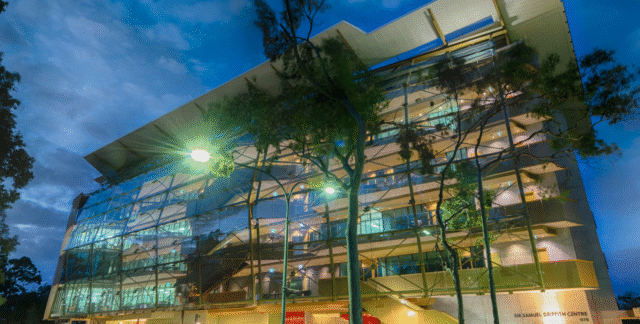“It wasn’t just about leading research; it was about stepping into a role where I could make a broader impact.”
The Baker Heart and Diabetes Institute has been awarded a SAGE Cygnet Award in recognition of it’s work in addressing the underrepresentation of women in senior scientific leadership roles.
The Baker Institute’s latest award reflects it’s long-term commitment to identifying and removing barriers that have limited women’s advancement into leadership roles. Through data-driven analysis, leadership development, transparent recruitment, and structural reforms, the Institute has reshaped how talent is recognised and supported at the highest levels.
Addressing gender inequity in senior leadership
In 2018, women held just 25% of laboratory head positions, and just 1 out of 7 research program leads were female. Recognising that recruitment, retention, and promotion practices were limiting women’s progression into leadership, the Institute undertook a comprehensive review of each stage of career advancement.
“We know that visible role models, flexible work and supportive structures are critical to trying to address this issue,” states Professor John Greenwood, Baker Institute Director.
“Like the broader scientific sector, we’ve still got more work to do to address the low proportion of senior women in science but we’re making inroads and we’re committed to doing more.”
This process led to the development of more equitable systems from recruitment to promotion; including the expansion of places and funding in the Alice Baker and Eleanor Shaw Gender Equity Fellowships, the introduction of leadership development and mentoring opportunities, and formalising flexibility arrangements provide support for women’s promotion progression.
The results of these reforms have seen the proportion of women in laboratory head positions increase to 35%, and achieving gender balance across research program leadership.
Normalising transparency and flexibility
A 2020 staff survey highlighted clear gender differences from laboratory heads in their perceptions of opportunity and balance. Only 38% of women believed they had the same opportunities for promotion as their colleagues, compared with 92% of men. When asked about the impact of outside responsibilities, 63% of women agreed these affected their promotion opportunities, while 77% of men disagreed.
In response, the Institute introduced leadership training and mentoring programs and succession planning initiatives to open new pathways for internal talent, alongside gender-balanced panels and transparent selection processes to reduce bias in recruitment and promotion.
“When I was promoted to laboratory head, it wasn’t just about leading research — it was about stepping into a role where I could make a broader impact. Baker has enabled me to build a team and secure significant additional funding to fully realise my research ambitions,” said one laboratory head.
As staff returned to on-site work in 2022, the Institute formalised flexible and remote work arrangements to better support employees in balancing professional and personal responsibilities. By 2024, only 20% of women laboratory heads reported that outside responsibilities affected their promotion opportunities — a marked improvement from 2020.
Setting the groundwork for real-world impact
Through targeted support, the Institute has enabled promotion and Fellowship recipients to secure over $6m in competitive funding, build high-performing research teams, generate globally impactful research, and take on institutional leadership roles.
“Baker’s progress demonstrates the power of intentional, data-driven reform to open leadership pathways,” said Dr Janin Bredehoeft, CEO of SAGE. “By approaching equity as a shared, structural responsibility, organisations can create real and enduring change.”
Building on the momentum
The Baker Institute plans to strengthen transparency and support across the next stage of the leadership pipeline. The Institute is reviewing promotion pathways from group leader to laboratory head to ensure the process is clearly defined and equitable.
It also intends to develop targeted initiatives to support women group leaders to aspire to and achieve promotion, alongside continued attention to pay equity and perceptions of fairness in advancement opportunities. These efforts aim to build on existing progress and sustain a culture where all researchers can thrive and lead.
About the SAGE Cygnet Award
SAGE Cygnet Awards celebrate organisations that have demonstrated progress in making their workplaces more equitable by removing or reducing a barrier to inclusion. They must be able to show that these changes have had a real impact on staff and/or students.
This award builds on Baker Institute’s Bronze Award and their previous Cygnet Awards on gender inclusivity and flexible work arrangements.
You can read all about Baker Institute’s actions, outcomes, and impact in their full Cygnet Award Application, or read an overview version in this Progress and Impact Summary.
About SAGE
Science in Australia Gender Equity (SAGE) is Australasia’s leading advocate and accrediting body for equity, diversity, and inclusion in the education and research sector. It is the guide our region’s brightest minds turn to when they want a vibrant workplace where everyone can thrive.
Using an evidence-based and impact-focused framework, SAGE helps institutions build systemic, structural, and cultural change. Their world-respected Athena Swan accreditation program drives and measures institutions’ progress against international benchmarks.



